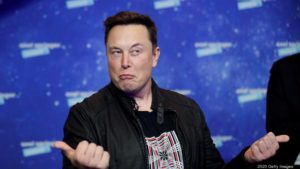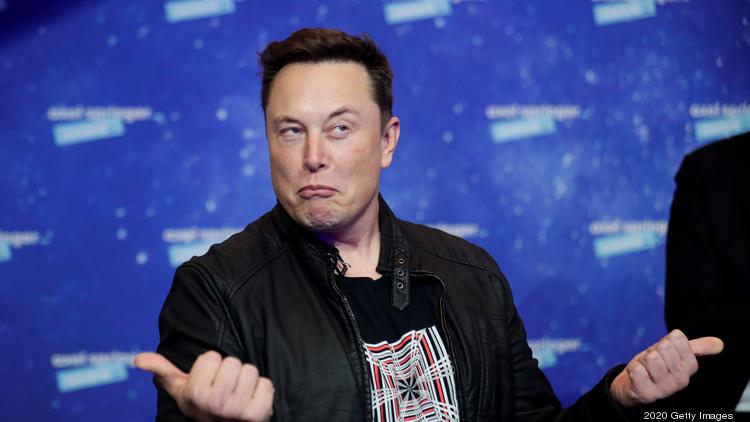Article published in the Philadelphia Business Journal on January 30, 2023.
Elon Musk, founder of Boring, SpaceX and Tesla, is a visionary, as was Steve Jobs, co-founder of Apple. They both pushed their people to change their paradigms and think beyond what was thought to be possible. They were out to change the world. Should their leadership styles be emulated?
What’s it like to work for Musk? He is a demanding boss. This is demonstrated not only at Boring, SpaceX and Tesla, but also at his recently acquired Twitter.
On Nov. 16, Musk issued an ultimatum that any Twitter employee not willing to work in a demanding and hardcore environment that requires complete dedication to building Twitter 2.0 would be fired and receive three months severance. Employees were told they needed to indicate their decision by 5 pm on Nov. 17.
Musk’s ultimatum backfired. Not willing to work in what they believed would be an oppressive environment, more than 2,000 employees took the severance offer, leaving Twitter woefully understaffed. Musk had to ask those with critical skills to rejoin the company.
At a January 2015 Detroit auto show, Musk described himself as a nano-manager, sometimes working 100 hours per week, as reported by the Wall Street Journal. Stories of him sleeping on the Tesla factory floor, personally overseeing resolution of production issues, are now nearly legendary.
Comments on what it’s like to work for Musk are mixed. A September 2019 Business Insider article reported comments by former Tesla employees:
The best part was really just working with an amazing team of inspired people who want to make the world a better place and, of course, delivering that awesome Tesla experience to customers.
Tesla had that “cool factor.” I’d walk around town with my work badge all the time just because I wanted to show off that I worked at Tesla.
An October 2019 Business Insider article also reported comments by former Tesla employees:
Because of the pressure that [Musk] puts on his senior leadership team, even if they have the experience, they wouldn’t dare speak up against him.
I think the level of autonomy that folks tend to have is nearly zero. There was only one decision-maker at Tesla, and it’s Elon Musk. (Author’s comment: One wonders how leaders within Tesla’s organization feel when they are undercut by Musk in front of their employees.)

Musk’s leadership style is similar to that of Steve Jobs. Under his leadership, Apple developed products that created new markets. These products are now ubiquitous in many people’s daily lives—the MacBook personal computer, iPhone, iPad and Apple watch. Apple also has that cool factor—employees want to work there and be part of changing the world.
Similar to Musk, Jobs had a reputation for being a demanding and intimidating boss. He held Apple products to standards not yet heard of within the industry. Jobs was not just selling products, but how they could be used to change our lives.
In an October 2011 Harvard Business Review article, Roberto Verganti wrote, “Jobs offered meaning to his employees. It is known that Apple’s employees worked hard on visionary projects, striving to meet targets and to satisfy their leader’s maniacal attention to detail. Jobs infused them with a sense of mission. Apple had to leave a mark in the world of computing, improve people’s lives, be bold and, of course, ‘think different.’” This is very similar to how one would describe Elon Musk.
In an October 2011 article in the Telegraph, Richard Branson, founder of Virgin Group, wrote, “Leadership doesn’t have a secret formula; all true leaders go about things in their own way. It’s this ability to think differently that sets them apart—that enabled Steve Jobs to create perhaps the most respected brand in the world.”
Branson wrote, “Steve Jobs’s leadership style was autocratic; he had a meticulous eye for detail, and surrounded himself with like-minded people to follow his lead. While he was incredibly demanding of his people, he wasn’t the best delegator—he wanted to involve himself in every detail.” Jobs was a micromanager, like Musk is a nano-manager.
Many of Musk’s and Jobs’ employees bought into the visionary mission of their companies. I doubt that the leaders reporting to them would tolerate working for an autocrat and being micromanaged if, unlike Tesla and Apple, the company lacked the ‘cool factor” and didn’t produce inspiring widgets that change the world.
Again, quoting Branson, “all true leaders go about things in their own way.” Musk and Jobs are outliers—they are unique. Both are considered innovative and transformational leaders. Learn from and emulate them, without adopting the negative aspects of their leadership styles.
Stan Silverman is founder and CEO of Silverman Leadership and author of “Be Different! The Key to Business and Career Success.” He is also a speaker, advisor and widely read nationally syndicated columnist on leadership. He can be reached at Stan@SilvermanLeadership.com.

